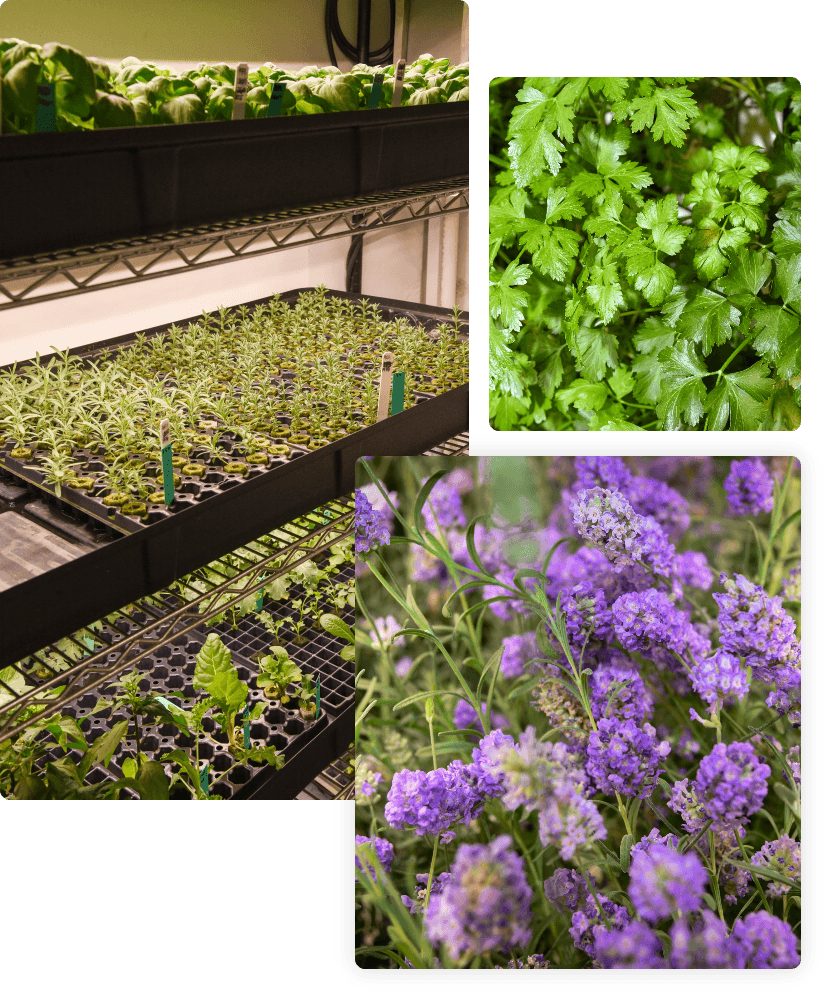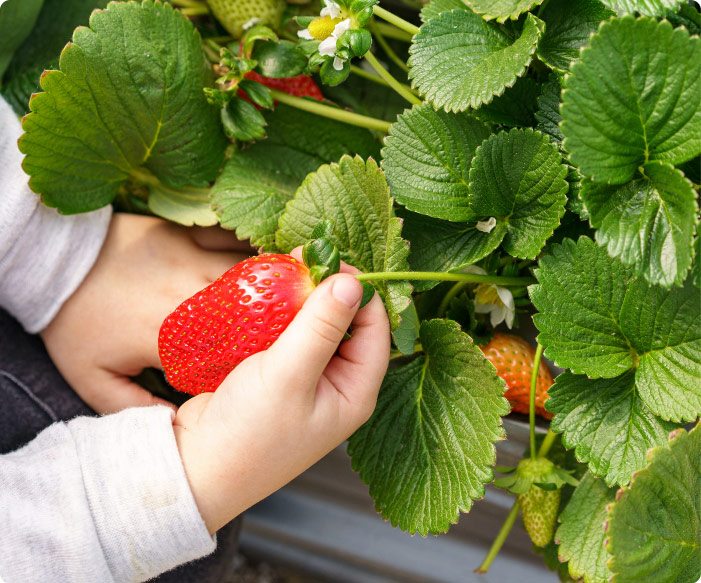Growing a Greener Future
At NuLeaf Farms, we believe in the power of sustainable agriculture and responsible business practices. Our Sustainability & ESG (Environmental, Social, and Governance) initiatives are at the heart of everything we do, ensuring that our operations are not only profitable but also contribute positively to the planet and the communities we serve.
We prioritize sustainable vertical farming methods that minimize the impact on the environment. Through innovative techniques and advanced technologies, we strive to conserve water, reduce energy consumption, and minimize waste generation.
The Power of Local
Reducing dependency on food imports is a crucial step toward achieving food security and building a resilient and sustainable food system. At NuLeaf, we recognize the importance of local food production and the benefits it brings to communities and the environment.
One key approach to reducing dependency on food imports is by promoting and investing in local farming and agricultural practices. By providing farmers with the necessary resources, knowledge, and support, we can enhance their productivity and enable them to meet the demands of the local market. This includes offering educational workshops and access to advanced farming technologies to expand and diversify their operations.


Indoor farming minimizes the ecological footprint of agriculture through reduced water usage, elimination of synthetic pesticides, and optimized resource efficiency. Its controlled environments enable year-round production, shorter supply chains, and decreased transportation emissions.
From a social perspective, indoor farming improves food security and accessibility by bringing fresh produce closer to urban areas, reducing reliance on long-distance transportation and minimizing waste.
It creates job opportunities, supports economic development, and ensures higher yields and consistent quality, enhancing food affordability and availability. Indoor farming combines technology and sustainable practices to promote inclusivity, improve access, and support community well-being.

Indoor farming’s efficient water management contributes to sustainability, particularly in water-scarce regions, and promotes a more water-conscious approach to food production.
Indoor farms require much less land compared to traditional agriculture for the same amount of production. This allows for efficient land use and minimizes the need for large expanses of arable land.
Establishing indoor farms in urban areas or in close proximity to consumers reduces the need for long-distance transportation, shortening the supply chain and minimizing time between harvest and consumption.
By operating in controlled environments, indoor farms can minimize crop loss due to pests, diseases, and adverse weather conditions, leading to higher yields and a lower likelihood of crop spoilage.
Effective governance can promote resource-efficient practices within indoor farming operations. Regulations and guidelines can encourage the use of advanced technologies and best practices for water conservation, energy efficiency, and waste reduction.
A well-governed indoor farming sector can attract investment and foster market growth. Clear regulatory frameworks and industry standards provide a level of predictability and stability that encourages investors to support indoor farming ventures.
Regulatory bodies and industry associations can promote research into new technologies, crop varieties, and cultivation methods that improve yields, resource efficiency, and environmental sustainability, fostering continuous improvement within the industry.
Indoor farming operations often serve as educational hubs, offering tours, workshops, and programs to schools and local communities. Governance that supports such initiatives helps raise awareness about sustainable agriculture, nutrition, and the importance of local food production.
Food Security
Year-round production of fresh fruits, vegetables, and herbs decreases reliance on imports, reducing the vulnerability of the food supply chain to disruptions like extreme weather events or transportation issues.
Economic Development
Indoor farming operations require a skilled workforce to manage various aspects of plant growth, technology, and logistics. As a result, indoor farming can generate jobs in both urban and rural areas.
Community Engagement
Educational programs and partnerships can raise awareness about sustainable agriculture and nutrition. Connecting people to the food production process can foster a sense of community involvement.
Improved Nutrition
The controlled environment of indoor farming can lead to year-round availability of certain crops, ensuring a consistent supply of fresh, nutrient-rich food even in regions with challenging climates. This contributes to improved overall well-being in the community.